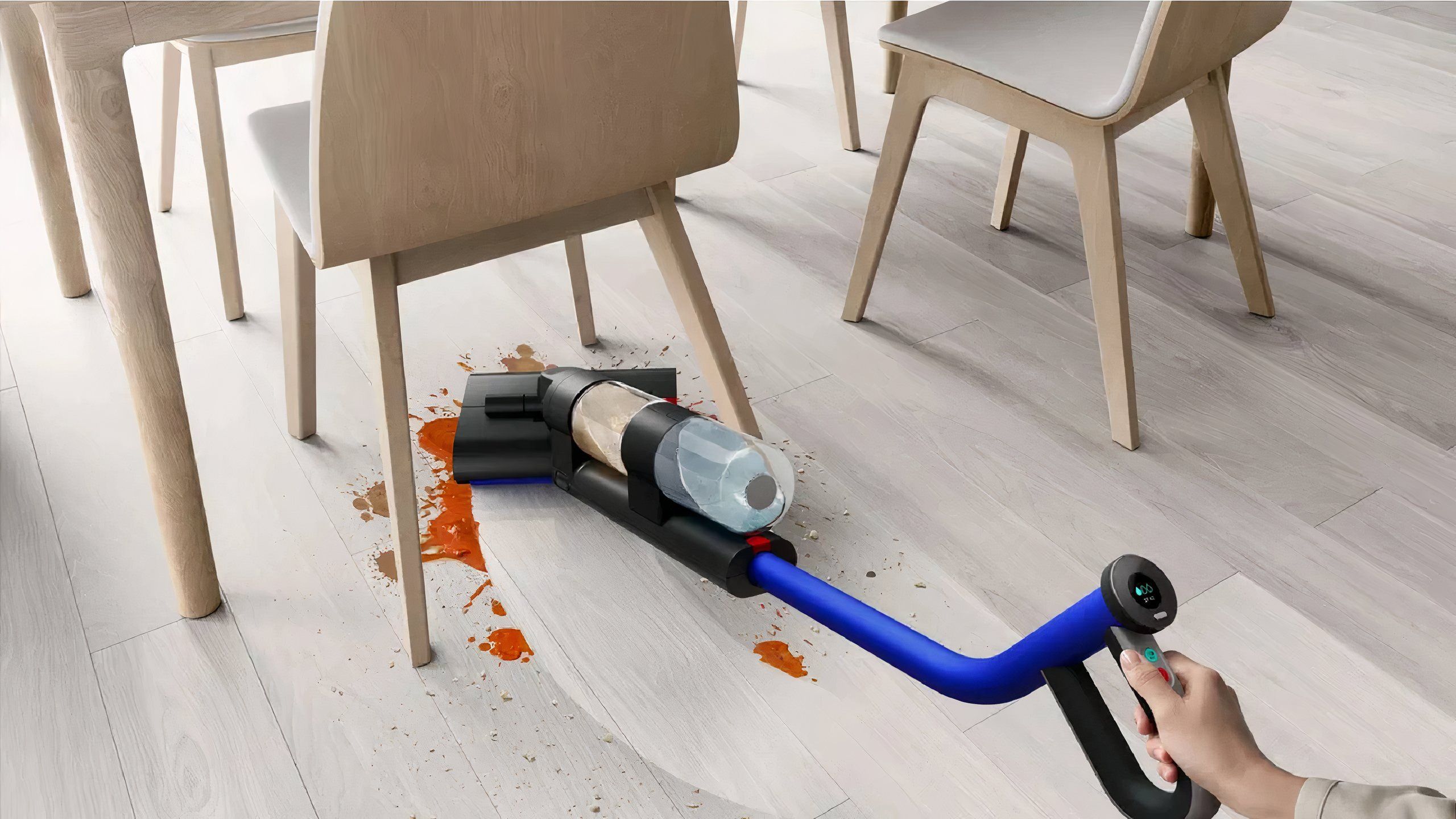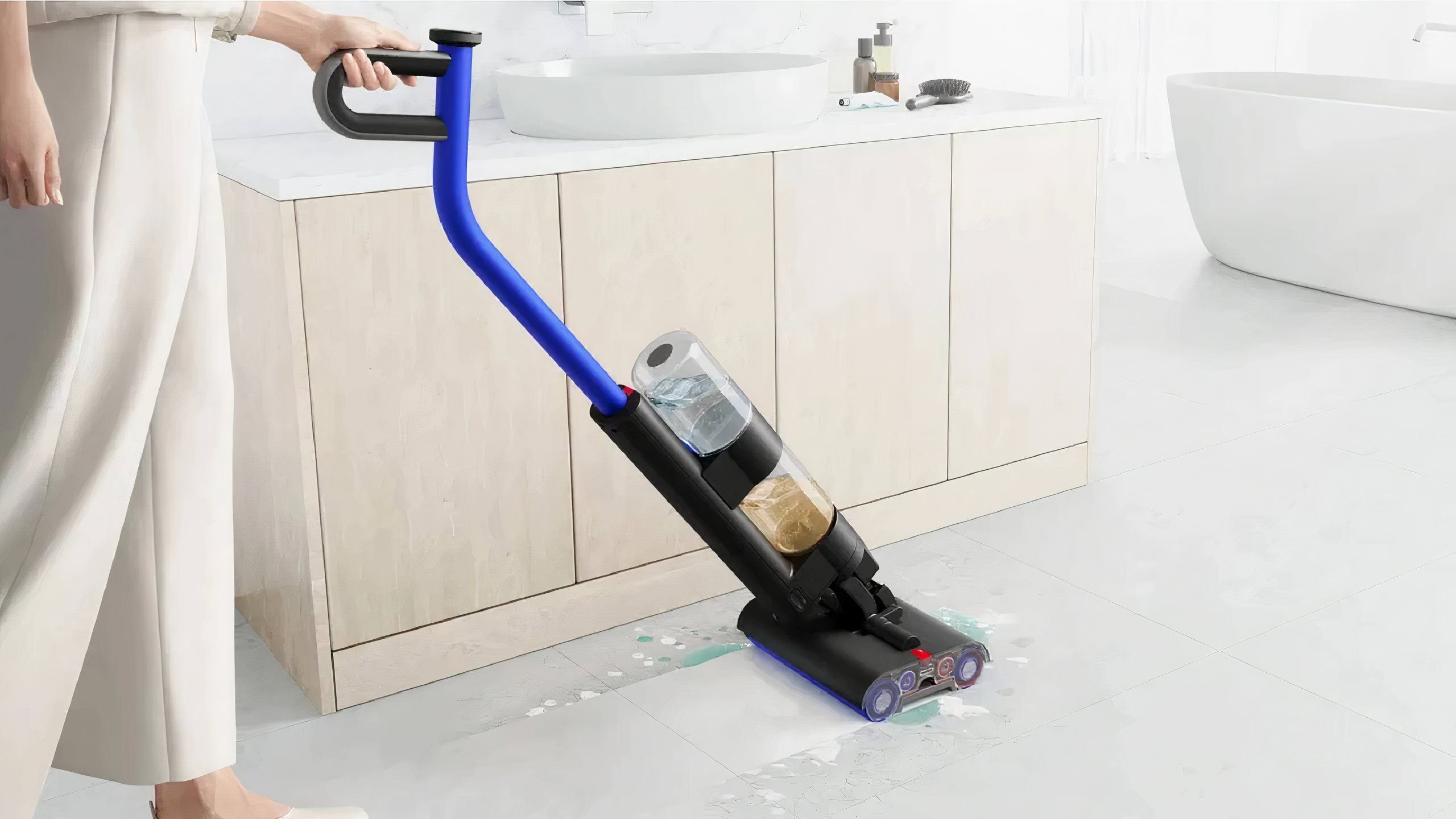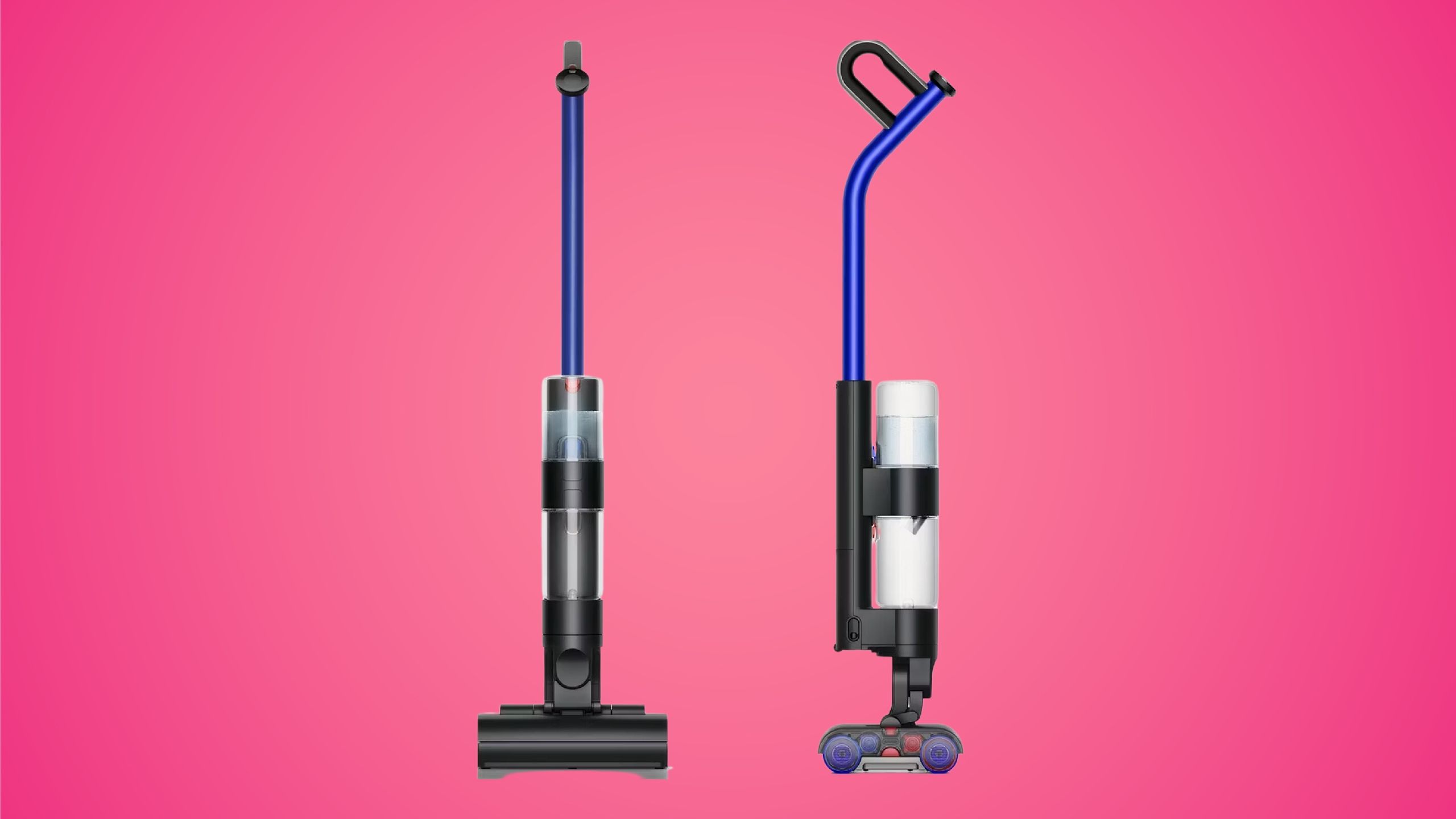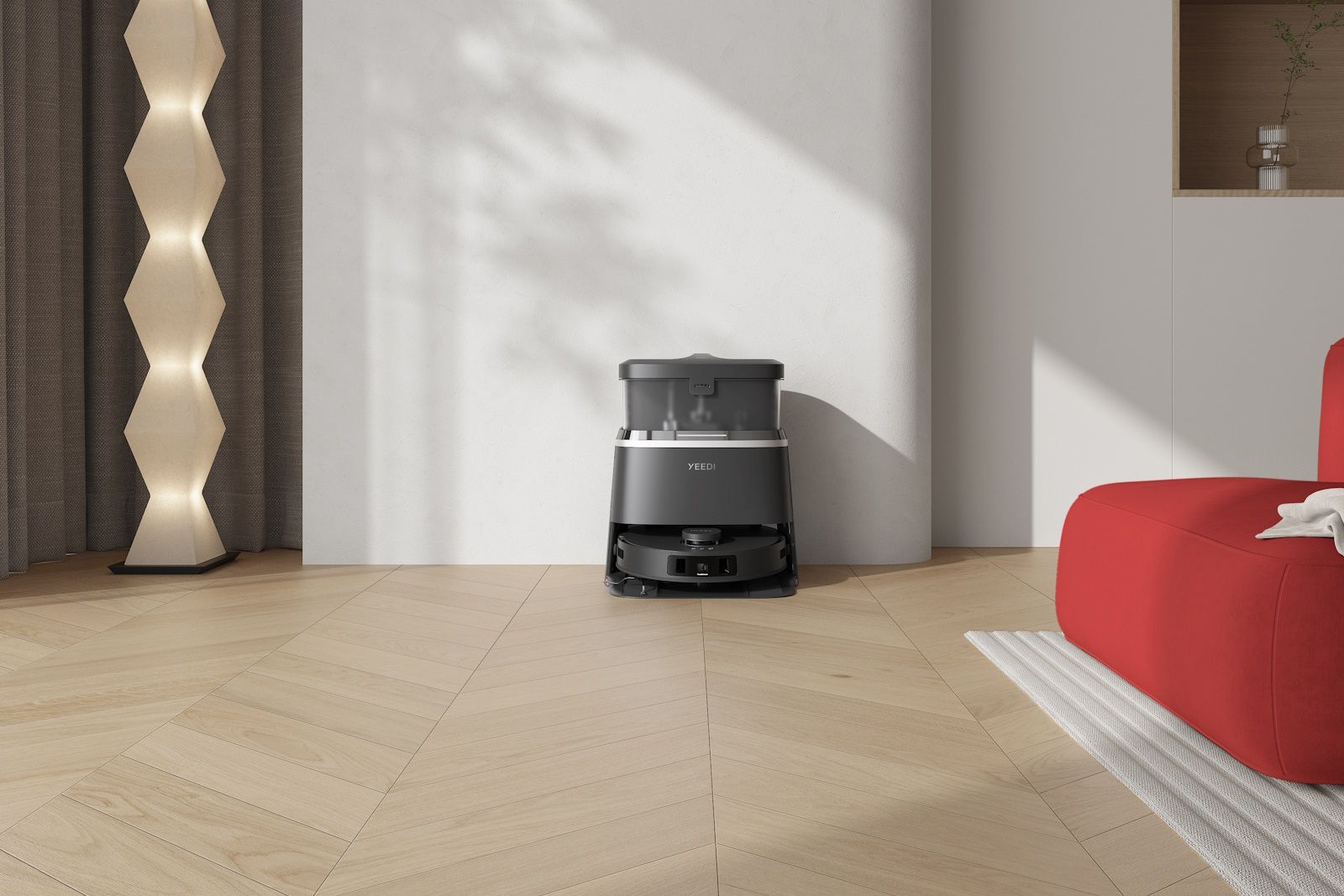Key Takeaways
- The Dyson WashG1 is a unique tool that will aim to solve the issues with traditional mopping by utilizing advanced technology.
- Dyson engineers spent extensive time designing the WashG1 to effectively handle various types of wet and dry debris found on hard floors.
- The WashG1 will be available in stores this fall for $700.
Trying to keep your home clean can seem like an endless task. It’s doubly hard if you have pets, kids, or both. Whether you’re dusting, wiping down your countertops, or cleaning up your lawn, there are plenty of chores that need to get done daily or weekly. Washing your floors may not be at the top of your list, as mopping is something that happens less regularly.
People tend to only mop if something spills on their floor. Vacuuming is the main way to clean up debris and dust off of your floors, from hard floors to rugs. There are many devices that can be used for that, from stand-up and cordless vacuums to robot vacuums. But if you want to mop your floor, you tend to need to vacuum it first, making it a chore that needs double the devices. Dyson has sought to fix that.
The Dyson Zone is a better pair of headphones than portable purifier
Dyson made a solid pair of headphones and fantastically portable air purifier, but the combo gets a bit clunky.
Dyson is one of the most well-known companies in the cleaning and home space, with vacuums, headphones, air purifiers, fans, and lighting among its products. The WashG1 is a first for the company, as it is a hard floor cleaner that doesn’t require suction. Most powered mops will spray water out onto the floor and then suck it back up again, but this latest technology isn’t that way. Here’s more on why Dyson decided to create this new home device.
Dyson engineers solve problems others ignore
There was a void in the market
Dyson
The Dyson WashG1 was unveiled a few weeks ago, and it’s Dyson’s answer to people who needed to mop and vacuum their floors more conveniently. In an interview with Pocket-lint, Ketan Patel, senior design manager at Dyson, told us the company saw an issue in the mop market and aimed to fix it.
Dyson engineers solve the problems others ignore, and we thrive on the challenge of creating better technology. Most wet floor cleaning options on the market today fail when it comes to stain removal, pick-up performance, and floor finish. We sought to design a machine that addressed these concerns, while keeping easy maintenance, maneuverability, and optimum floor finish in mind,” Patel said. “The Dyson WashG1 wet floor cleaner is our first machine dedicated to washing hard floors, properly.”
What makes the Dyson WashG1 different from other mops is that it has highly absorbent microfiber filament rollers counter-rotate over spills, debris, and more, as a pulse-modulated pump distributes water evenly across different points. So this won’t spray water out while you’re power mopping. It will consistently put water down as it’s going over a spot, having it absorb into the rollers for a smooth clean. If there is a particularly tough area to clean, there is a boost mode that will allow it to send the maximum amount of hydration to each roller to help the user get rid of the tough stain. There are two rollers in the front and two in the back of the machine which allows the machine to spend more time trying to clean up stains.
Why was hydration control important to Dyson? Because it’s a constant problem for homeowners. “To effectively address common household floor cleaning frustrations such as tough stains, a certain amount of water is required to dilute and efficiently absorb debris from the hard floors,” said Patel. “We know customization is key for our owners, so we knew we wanted to design a wet floor cleaning machine that allowed owners to select the level of hydration required based on debris type, flooring, or personal preference.”
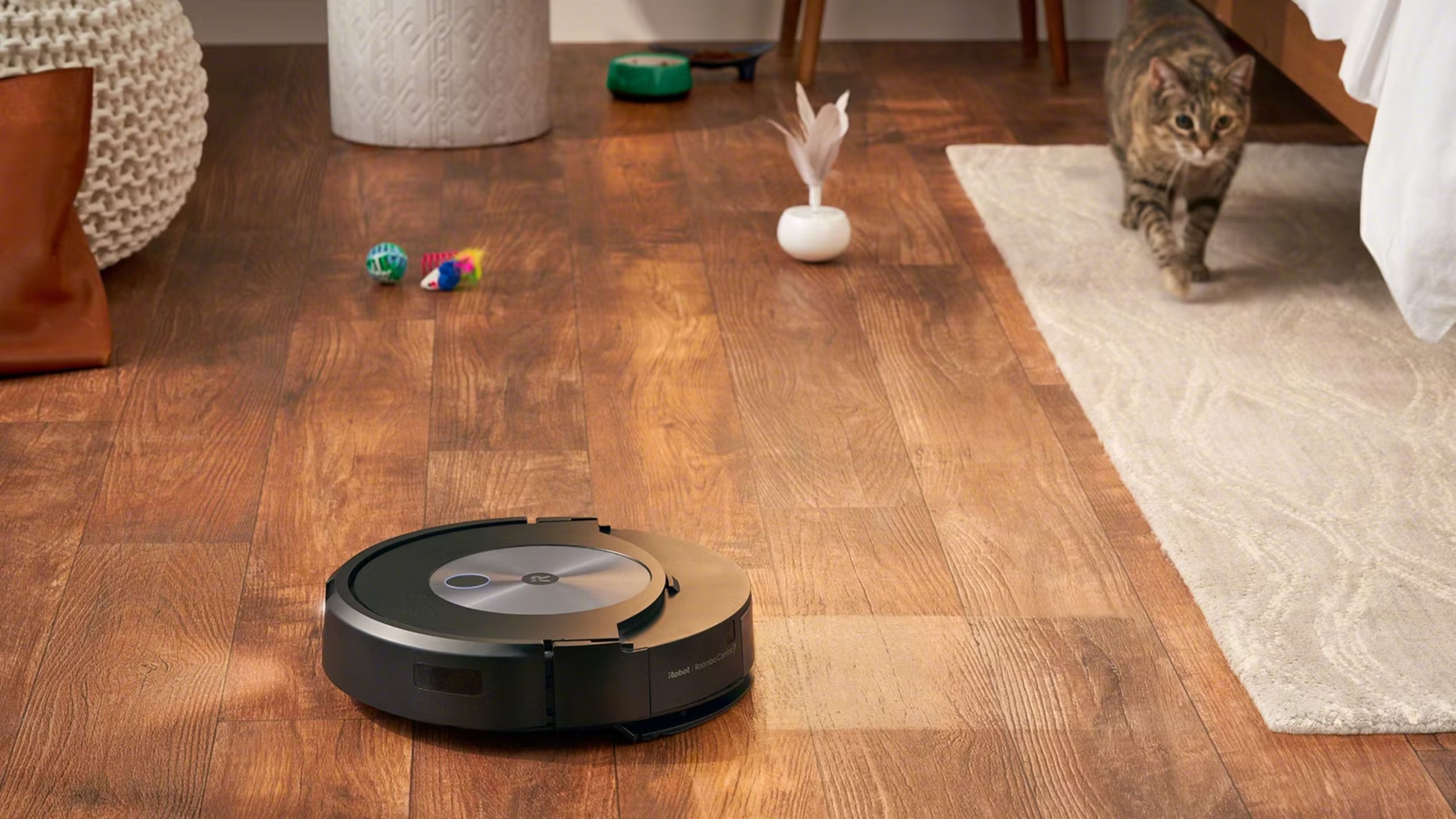
Best robot vacuum and mop duo: All-in-one cleaning
Cleaning your floors is timing consuming, but it can go a lot faster if you drop your broom and mop and get a robot to do it for you.
Building the WashG1
Finding the balance
Dyson
The power mop stands upright and features a similar handle design to many Dyson stand vacuums. It is also battery-powered just as many Dyson vacuums are. The WashG1 has a 27-ounce clean water tank that covers 3,1000 sq. ft. at a time. It is made for homes with large amounts of hard floors, including tile, flooring, and hard wood. Each microfiber roller features 64,800 filaments per cm².
Dyson did extensive research when designing the WashG1 on wet debris and engineers developed categories for wet and dry debris. Researchers categorized them into 13 groups across four categories: dried-on debris, dry dust and debris, a mix of solid debris and liquid, and homogeneous liquids. Then, the company worked backwards to create a machine that would be able to handle all of them.
Because the WashG1 uses “a combination of hydration, agitation and separation technologies” rather than suction, it had to be fully tested to get it right.
Through simulations and prototypes, Dyson is able to test out new ideas and development processes. Over 500 prototypes were built in the development of the WashG1, and engineers used their findings to ultimately craft the version that will hit the market. Because the WashG1 uses “a combination of hydration, agitation and separation technologies” rather than suction, it had to be fully tested to get it right.
“One of the biggest challenges was finding a way to achieve a balance of the roller speed, hydration rate, and pick-up performance,” said Patel. “One of the biggest challenges was finding a way to achieve a balance of the roller speed, hydration rate, and pick-up performance. This necessitated trying many roller materials and densities across a host of pick-up tests. These led to the need to vary hydration levels to suit different cleaning tasks. The result of this exhaustive testing is an easy-to-maneuver machine that washes hard floor properly.”
When will the WashG1 be ready?
Get ready for it this fall
Dyson / Pocket-lint
Following the extensive testing process, the Dyson WashG1 will hit the market sometime this fall retailing at $700. It will be in stores across several global markets this year.
Consumers who are interested in testing it out now — or before it comes out — can at a local Dyson Demo Store near them. As for what advancements Dyson is ready to make after entering the world of suction-less mops, Patel was keeping it close to the vest.
“At Dyson, we like to keep our secrets secret,” he said. “As a global technology company, we operate in over 85 countries, offering a range of advanced technologies that cater for the cleaning needs of our owners. Dyson engineers and scientists are hard at work on a pipeline of future technologies.”
Trending Products

Cooler Master MasterBox Q300L Micro-ATX Tower with Magnetic Design Dust Filter, Transparent Acrylic Side Panel, Adjustable I/O & Fully Ventilated Airflow, Black (MCB-Q300L-KANN-S00)

ASUS TUF Gaming GT301 ZAKU II Edition ATX mid-Tower Compact case with Tempered Glass Side Panel, Honeycomb Front Panel, 120mm Aura Addressable RGB Fan, Headphone Hanger,360mm Radiator, Gundam Edition

ASUS TUF Gaming GT501 Mid-Tower Computer Case for up to EATX Motherboards with USB 3.0 Front Panel Cases GT501/GRY/WITH Handle

be quiet! Pure Base 500DX ATX Mid Tower PC case | ARGB | 3 Pre-Installed Pure Wings 2 Fans | Tempered Glass Window | Black | BGW37

ASUS ROG Strix Helios GX601 White Edition RGB Mid-Tower Computer Case for ATX/EATX Motherboards with tempered glass, aluminum frame, GPU braces, 420mm radiator support and Aura Sync


